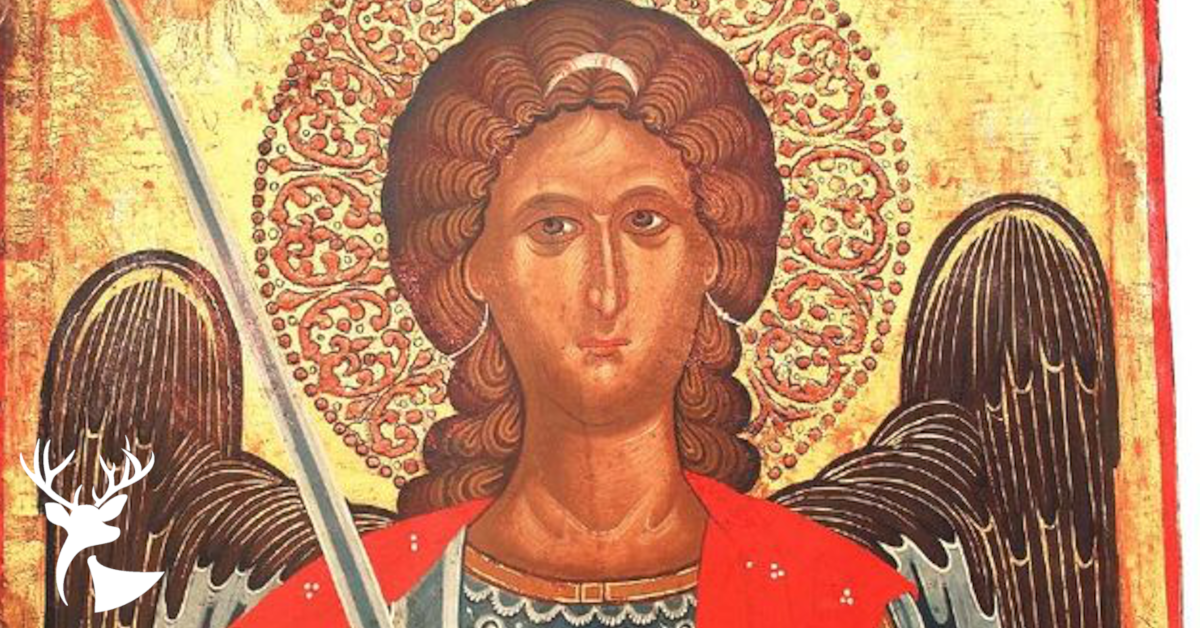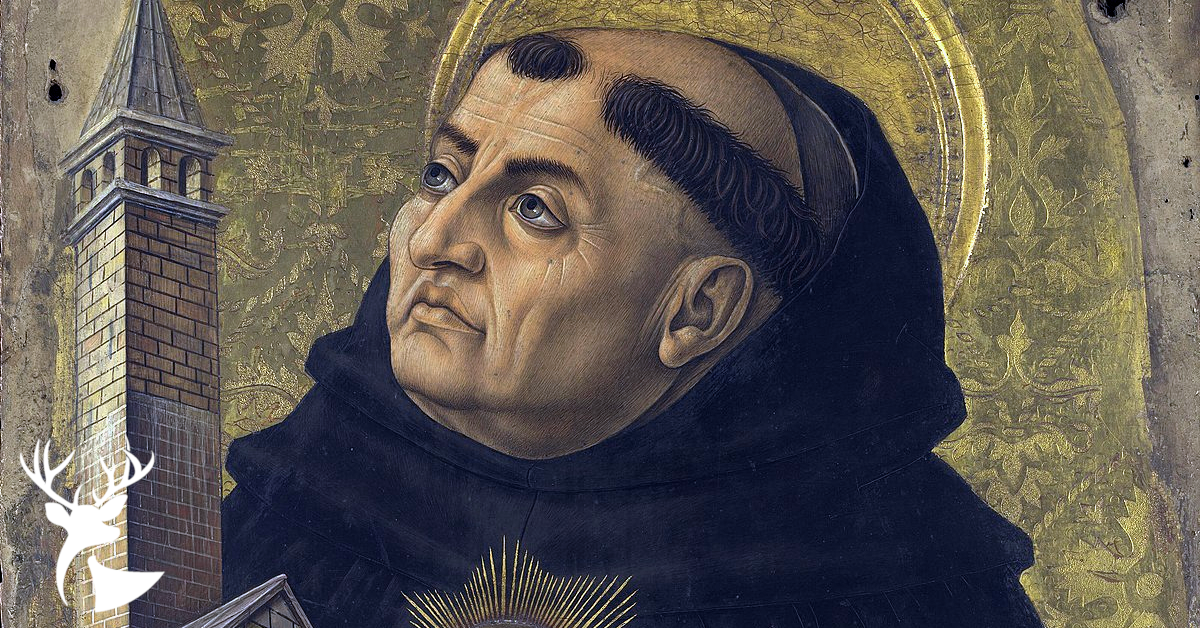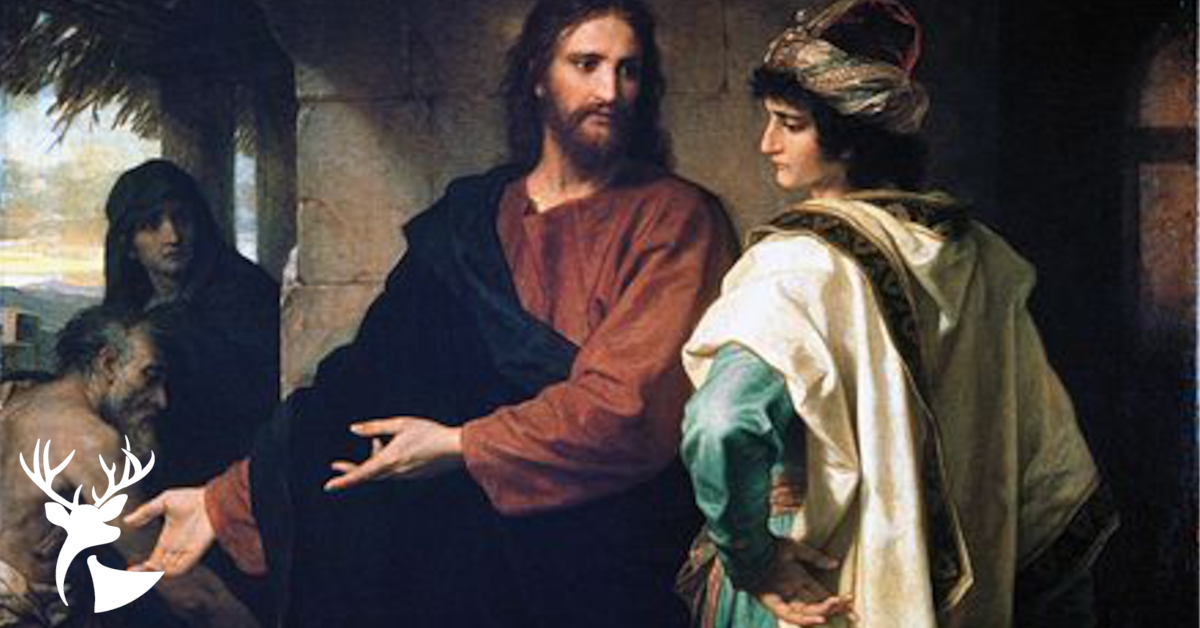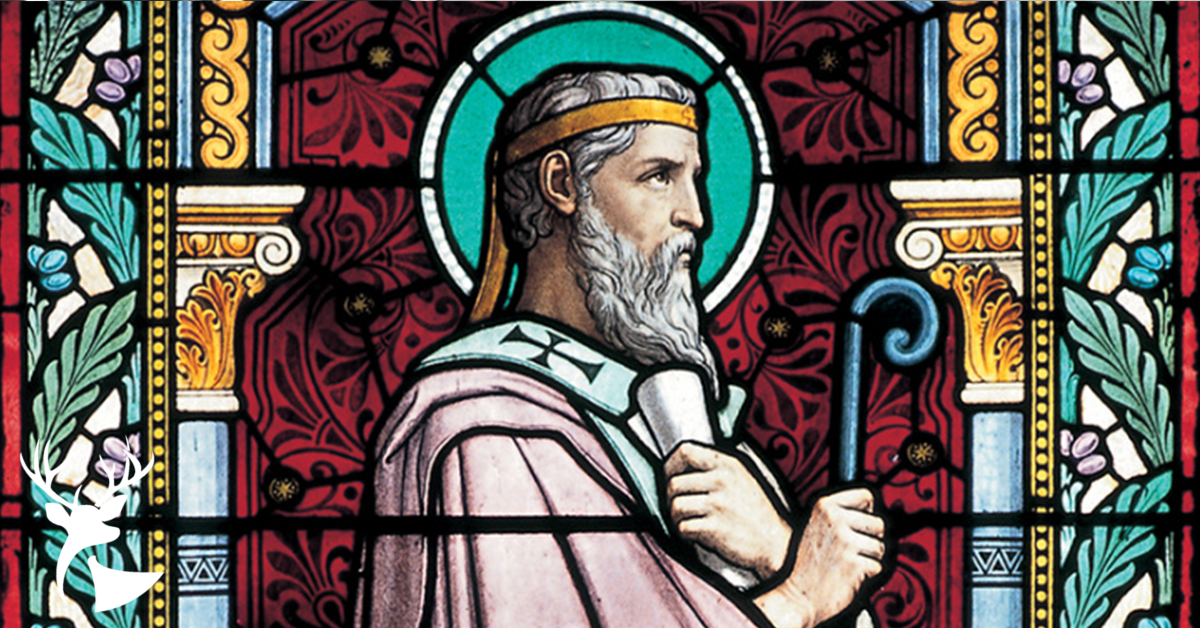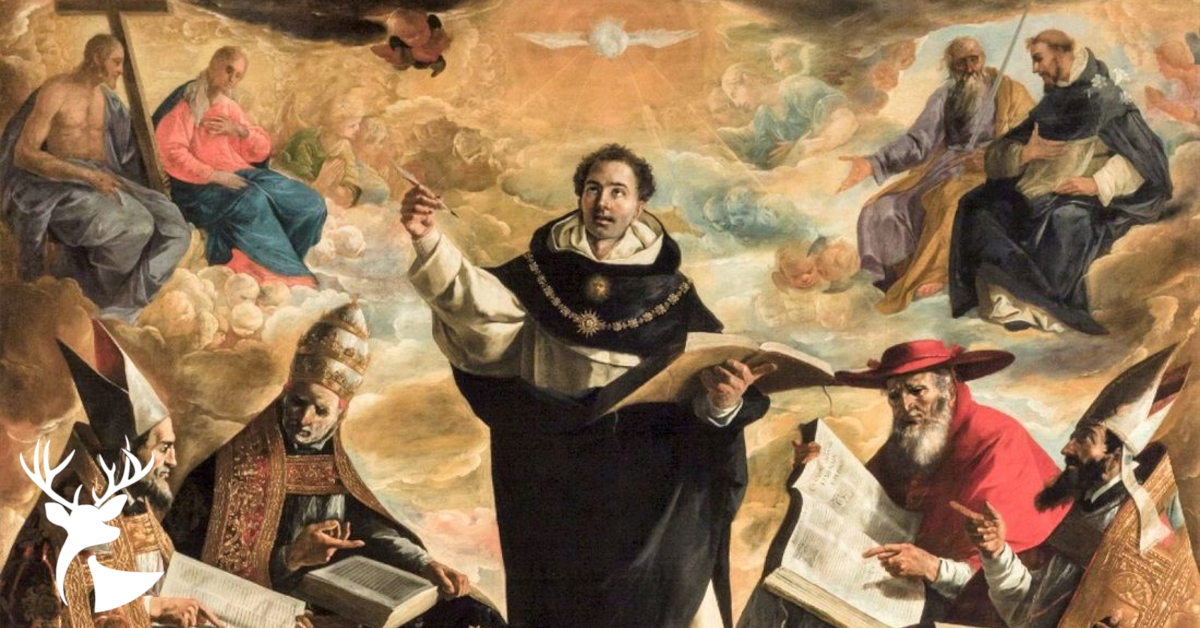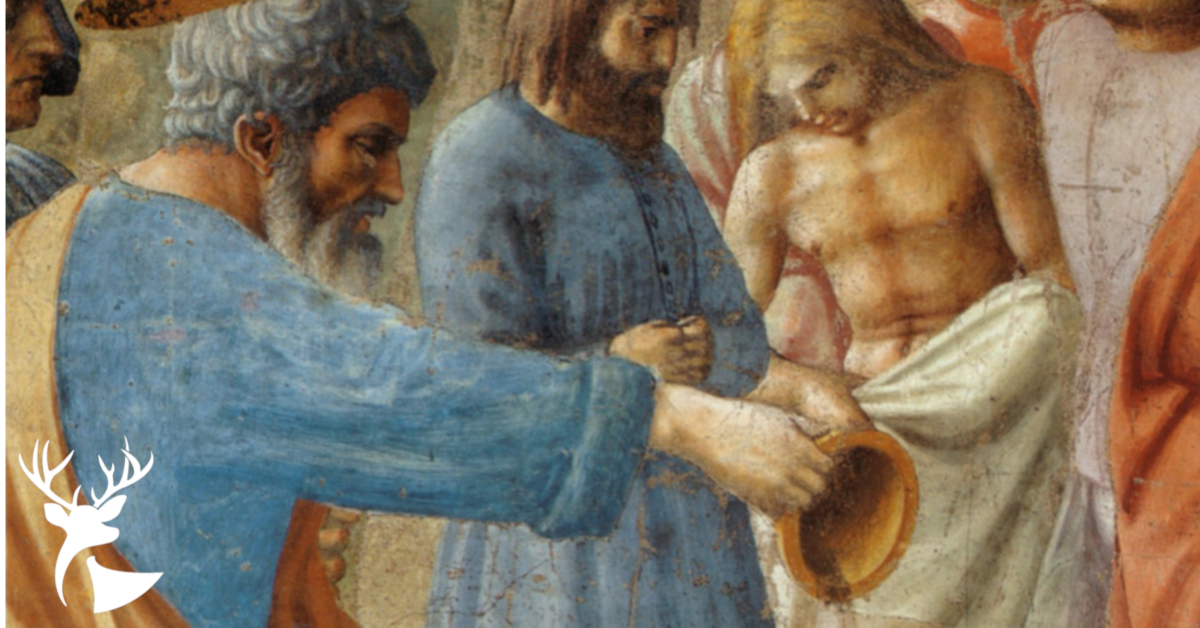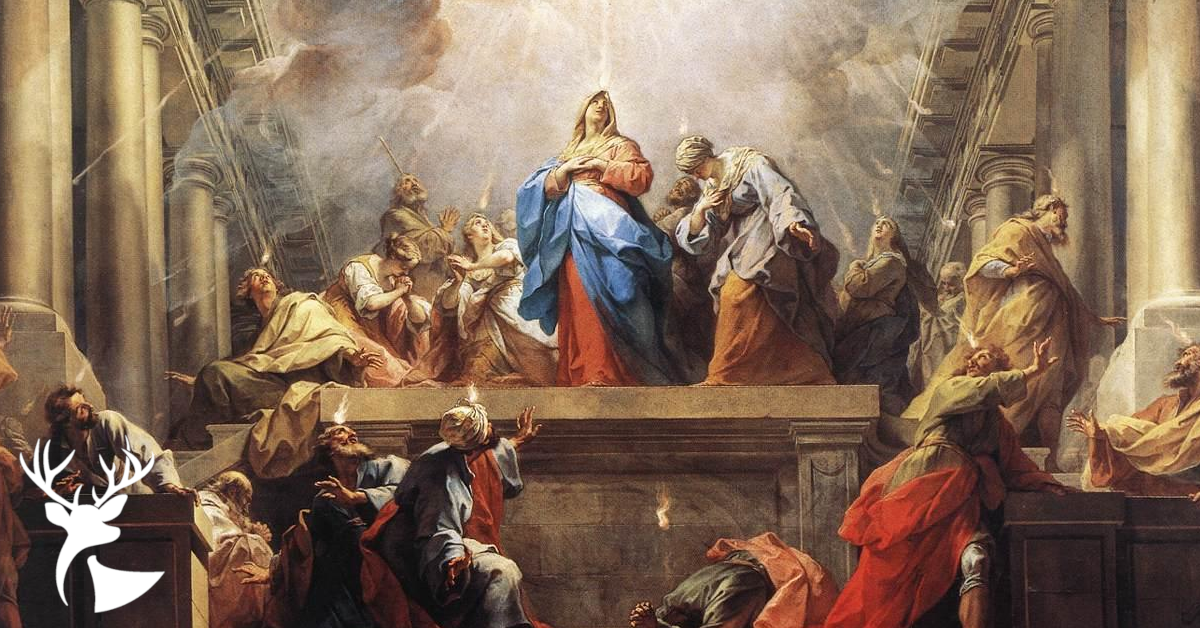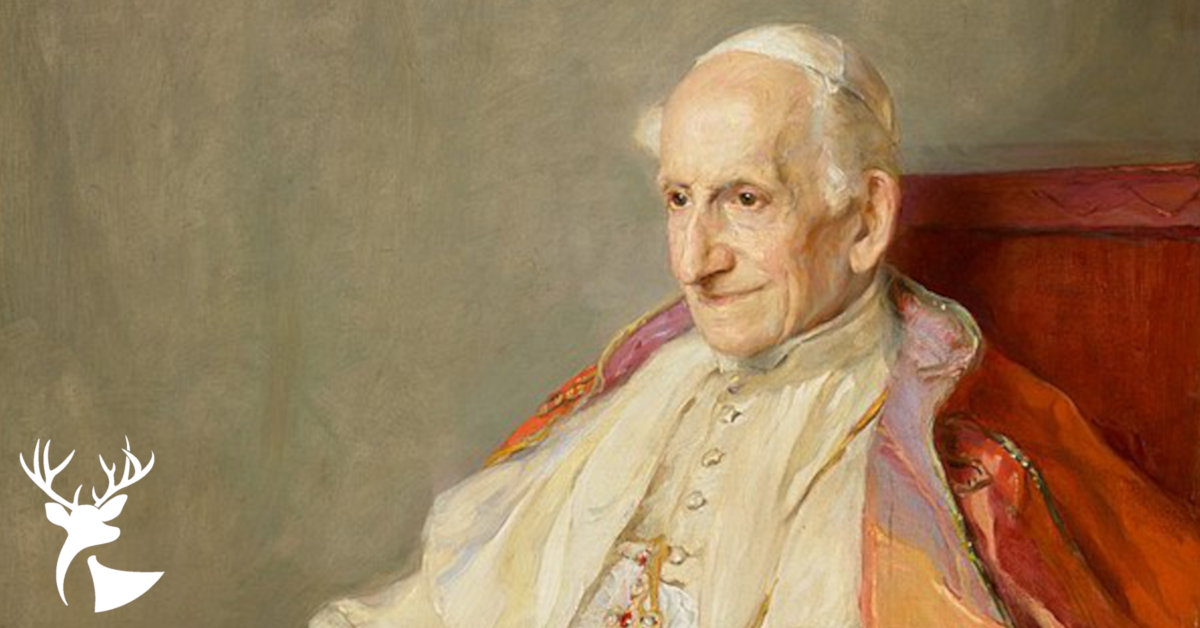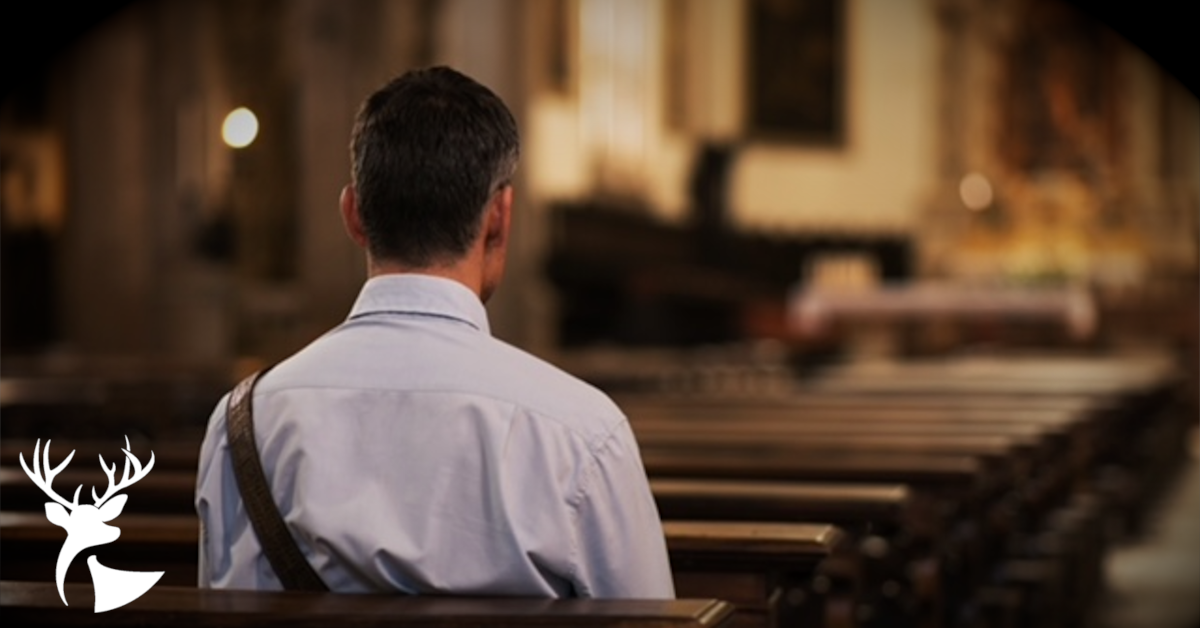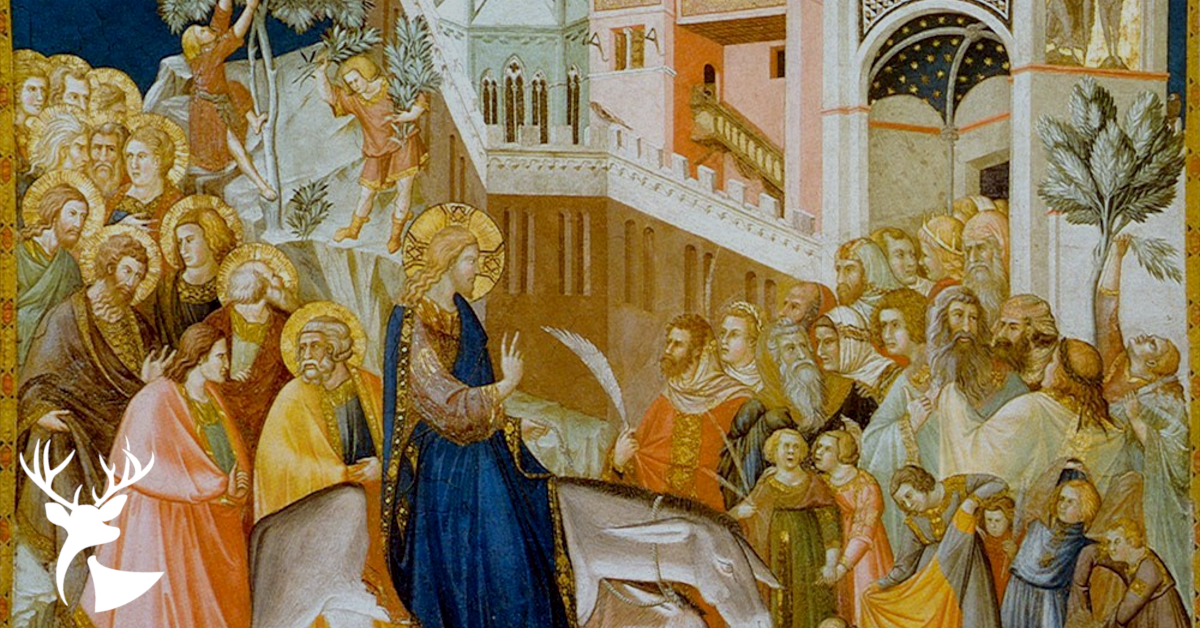

Palm Sunday & the Sanctus
By Eli Stone | March 26, 2021
“Sanctus, Sanctus, Sanctus. Dominus Deus Sabaoth! Pleni sunt cæli et terra gloria tua; Hosanna in excelsis! Benedictus qui venit in nomine Domini; Hosanna in excelsis!”
—The Sanctus
This Lenten season, my parish has opted to use the Latin responses during the Liturgy of the Eucharist. Though my experience with singing Latin is minimal (and it would probably be best for the world if it remained that way), I have often found myself humming or event chanting the Sanctus at various moments as I go about my day. Now, I find a fitting occasion to consider it in more depth, in light of the fact that we are beginning Holy Week in only a couple of days.
The entirety of the Sanctus comes from Scripture. The first part of it is adapted from the seraphic hymn in Isaiah 6: “Holy, holy, holy is the Lord of hosts; the whole earth is full of His glory.” The word “holy” makes for an interesting study in itself; most explanations of the concept of “holiness” define it as “being set apart for a particular (divine) purpose.” Modern scholars and thinkers like Rudolf Otto, looking at the Hebrew equivalent qadosh, have emphasized that this unique word has the additional sense of “otherness”—that is, when we acclaim God as “holy,” we are professing that He is very different than us; that He is “other.”
To say that these two meanings complement one another in the context of the liturgy would be an egregious understatement! At this point in the Mass, not only is the priest preparing to “make holy” (i.e. set apart) the gifts of bread and wine, but by the power of the Holy Spirit, these mundane elements are miraculously changed into God Himself. Put another way, these gifts cease to be what they are and instead become what they are (or “were”) not; they become the wholly other God, whose glory fills all heaven and earth. (Side note: this filling of “heaven and earth” is also seen particularly in the Mass, where heaven and earth meet!)
The second part of the Sanctus is perhaps most timely as we prepare for Palm Sunday. Both acclamations (“Hosanna in the highest!” and “Blessed is He who comes in the name of the Lord”) are taken from the Psalms and the Gospels, respectively. They come together as the crowds of people sing to welcome Jesus into Jerusalem. The incorporation of these resounding cries of joy in the Mass is far from accidental; just as those Israelites welcomed their Lord Jesus into their midst two thousand years ago, so we too celebrate the coming of the Lord that is about to take place before our very eyes.
Immediately after this moment of jubilant praise, however, we kneel, both in reverence and in prayer as we anticipate the coming sacrifice. Then, as now, there is a hint of sorrow in Jesus’s coming as He prepares for Good Friday. He indeed comes into Jerusalem, celebrated and esteemed as the Prince of Heaven—but He knows that He will soon be led out of Jerusalem whipped, mocked, and scourged.
So, let us take the opportunity to make this Holy Week truly “holy.” Why not “set aside” some extra time for the divine purposes of prayer and reflection? Why not make Holy Week stand out as an “other” amongst the weeks of your year? As we sing the Sanctus this Sunday, may our hearts be drawn into the great mysteries of our faith: the sorrow we anticipate on Good Friday, culminating in the joy we earnestly long for on Easter.
More Reading

Eli Stone has served as a Research and Administrative Assistant for the Alcuin Institute, and presently works with the University of Tulsa.


